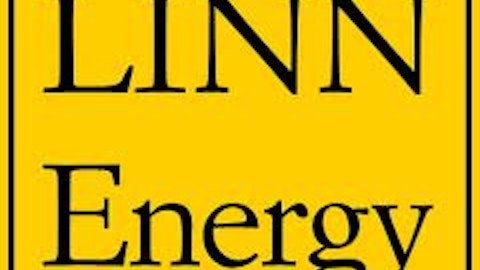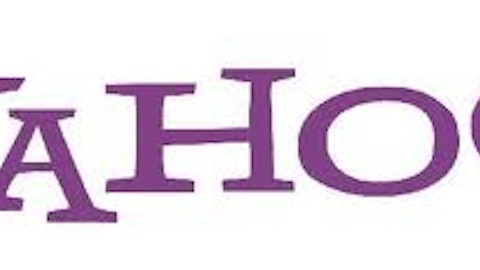Yahoo! Inc. (NASDAQ:YHOO) has increased in price by about 70% in the last year, as the company’s sale of its assets has created shareholder value and generally left the markets with a favorable impression of new CEO Marissa Mayer. Thanks to cost cutting, even though Yahoo experienced a decline in revenue in the first quarter of 2013 versus a year earlier the company recorded about a 10% increase in operating income. It is currently valued at 18 times forward earnings estimates, suggesting that the market is expecting moderate to high growth over the next few years.
Another way to look at Yahoo is to use a sum of the parts analysis based on its geographies, as its operating income is actually less than its earnings from equity interests. Yahoo! Inc. (NASDAQ:YHOO) still owns a stake in Alibaba Group; if we assume that the valuation has increased from Alibaba’s most recent round of financing, this could be worth between $10 and $12 billion. Then there is Yahoo! Japan, whose valuation has increased substantially in recent months on a rising Japanese stock market, and about $6 billion in cash and marketable securities less $2.5 billion in total liabilities. If we assume that the value of the Yahoo! Japan investment has grown to $6 billion (it was estimated at a little over $4 billion last fall), then the core business is valued at about $9 billion. If quarterly EBITDA from that segment is over $300 million, then that makes for a valuation of 7.5x trailing EBITDA on the core business.
Billionaire Dan Loeb’s activist fund Third Point has been a major shareholder in Yahoo for some time, and had been agitating the company to replace its former CEO. We track quarterly 13F filings from hundreds of hedge funds, including Third Point, as part of our work developing investment strategies (we have found, for example, that the most popular small cap stocks among hedge funds outperform the S&P 500 by an average of 18 percentage points per year) and can see from our database that Loeb had 62 million shares in his portfolio as of the end of March (find Loeb’s favorite stocks). D.E. Shaw, managed by billionaire David Shaw, was another major shareholder with a position of 7.8 million shares (check out more stocks D.E. Shaw owned).
Yahoo’s closest peers are Google Inc (NASDAQ:GOOG) and AOL, Inc. (NYSE:AOL). The forward valuations of these two stocks are in the 17-20 range, so in that sense Yahoo! Inc. (NASDAQ:YHOO) appears to be priced about in line with its peers. Of course, Google has a strong brand name and has been growing its business particularly through its strength in search. Earnings were up 16% in its last quarterly report compared to the first quarter of 2012, and even though analyst expectations do take Google’s growth potential into account it certainly appears to be an interesting pick given that it is priced in line with these peers. AOL engaged in a major share buyback recently following the sale/lease of a patent portfolio, and combined with some growth in net income this has caused earnings per share to rise considerably. Still, we are skeptical that the company can sustain this growth in EPS by enough to justify a higher forward valuation than Google or Yahoo.
We can also compare Yahoo to Baidu.com, Inc. (ADR) (NASDAQ:BIDU) and to Microsoft Corporation (NASDAQ:MSFT), which has its own Internet portal initiatives and also cooperates with Yahoo! Inc. (NASDAQ:YHOO) in search. Baidu carries trailing and forward P/Es of 20 and 15, respectively, with analyst expectations beyond that point being high enough that the five-year PEG ratio is less than 1. We’d note that the stock is down 14% in the last year against a rising market, even as revenue and earnings have risen, likely on concerns over China. Microsoft is, in a sense, the cheapest of all of the stocks we’ve mentioned here at 12 times forward earnings estimates. However, we’d be concerned that some of these earnings will be temporary as consumers and businesses buy new versions of Windows and Office. We’re also interested in learning more about the company’s reorganization plans; we wouldn’t expect them to do much good but it is at least possible.
Baidu and Google are growing nicely and- if we stick to earnings multiples- appear to be at least as good values as Yahoo and certainly better buys than AOL. Of course, we’ve noted the sum-of-the-parts case for Yahoo! Inc. (NASDAQ:YHOO), and investors may want to explore that thesis in more detail.
Disclosure: I own no shares of any stocks mentioned in this article.






